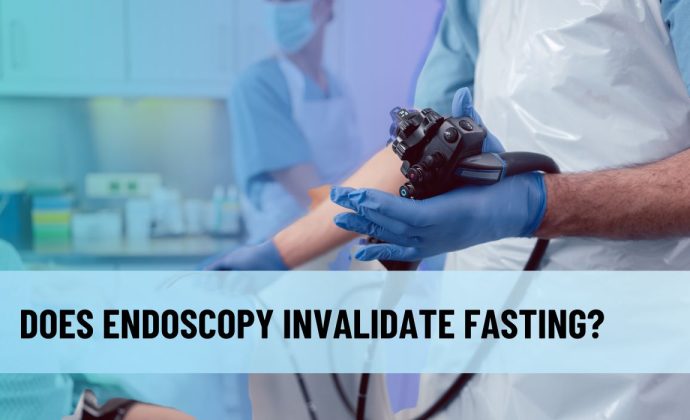
Does Endoscopy Invalidate Fasting?
Does endoscopy invalidate fasting?
Quoted from the nu.or.id website, there are differing opinions from several ulama in addressing this matter, because endoscopy is a tool that cannot be categorized as food.
1. According to the Hanafi school
Endoscopy does not invalidate the fast. This is because the condition for breaking the fast is that the object inserted into the body must remain inside the body. Therefore, endoscopy does not invalidate the fast just as fasting individuals who are stabbed with a spear that reaches the cavity of the body (jauf) or their brain and then remove it.
“If someone is stabbed with a spear that reaches the cavity of the body (jauf) or their brain. If he removes it (the spear) along with the tip of the spear, then it does not invalidate (the fast). And if the tip of the spear remains (inside the body), then it invalidates (the fast). And this indicates that the object staying inside the body cavity (jauf) is a condition for the invalidation of the fast,” (Abu Bakar al-Kasani, Kitab Badai’ush Shawani’ fi Tartib asy-Syarai’i [Beirut: Darul kutub al-Ilmiyah: 2008 M], Volume II page 84).
2. According to the Maliki school
Endoscopy through the upper cavity (jauf) such as the throat invalidates the fast. Meanwhile, endoscopy through the lower cavity (jauf) such as the anus does not invalidate the fast. Maliki scholars are of the opinion that if an object is inserted into the digestive system through the lower cavity such as the anus or vagina, and it is solid, it does not invalidate the fast. Whereas if an object is inserted into the digestive system through the upper cavity such as the throat, it definitely invalidates the fast whether it is solid or liquid.
“If someone swallows a piece of thread and one end is still protruding, then breaking the fast is through the insertion of the reaching end,” (Muhammad ad-Dasuki, Kitab Hasyiyah ad-Dasuki ‘ala Syarh al-Kabir [Beirut: Darul Fikr, 2008], Volume I, page 523).
3. According to the Shafi’i school
Endoscopy is considered to invalidate the fast. This is because endoscopy is an attempt to insert something into the body cavity. In the Shafi’i school, this case is equated with inserting the end of a solid object like a thread into the body cavity (jauf), which invalidates the fast.
“If someone swallows a piece of thread and one end is still protruding, then breaking the fast is through the insertion of the reaching end” (An-Nawawi, Kitab Majmu’ Syarh Muhadzab [Beirut: Darul Fikr, 2003], Volume XI, page 316).
4. According to the Hanbali school
Any deliberate insertion of something into the body cavity (jauf) can invalidate the fast. This means that endoscopy also invalidates the fast.
“And whoever eats, drinks, or inserts something into his body cavity (jauf) from any place, and he remembers his fast, then he is obliged to make up for it without expiation, if his fast is obligatory” (Ibnu Qudamah, Kitab al-Mughni [Cairo: Maktabah al-Qahirah, 2003], Volume III, page 119).
From the various opinions above, we can use them as references before undergoing endoscopy. It depends on the school of thought that each individual trusts/follows.
Generally, the majority of the Indonesian population follows the Shafi’i school (mui.or.id). In this school of thought, endoscopy is considered something that can invalidate the fast.
Wallahu ‘alam bis shawab.
Source video: Original video of endoscopy at the Gastrointestinal Endoscopy Center (PESC), RSCM.
Information sources: NU.or.id (2022). Does Endoscopy Practice Invalidate Patients’ Fasts MUI.or.id (2024). Why is the Shafi’i School Dominant in the Islamic World, Including Indonesia?



 Users Today : 181
Users Today : 181 Total views : 2138626
Total views : 2138626 Who's Online : 4
Who's Online : 4